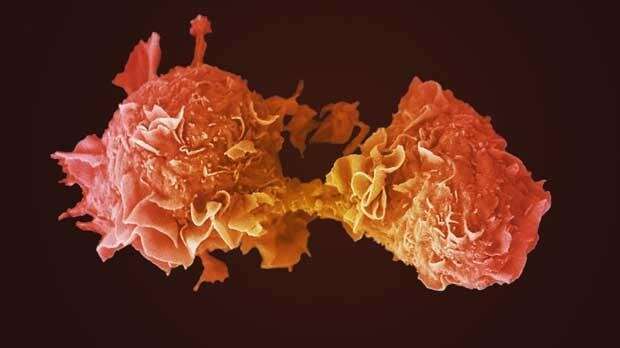
In two decisions published today, the National Institute for Health and Care Excellence (NICE) has approved the drug osimertinib (Tagrisso) to treat some adults in England with advanced lung cancer whose cancer tests positive for a faulty version of a molecule called EGFR.
Around 1,800 people in England have advanced EGFR-positive lung cancer, and the majority are set to benefit from the new recommendations.
First line treatment for advanced lung cancer
Following a rejection last year, and further negotiations between the manufacturer and NHS England on the drug’s price, osimertinib will now be an option for patients whose non small cell lung cancer (NSCLC) has begun to spread to other parts of the body and who have not yet received treatment for their cancer. These cancer cells would also need to test positive for a faulty version of a molecule called EGFR.
Current first-line treatments for these patients include one of three targeted treatments—gefitinib, erlotinib and afatinib.
Data from a late-stage clinical trial suggests that osimertinib increases the time taken for the disease to grow significantly, and increases how long patients live, compared to either gefitinib or erlotinib. NICE did note that NHS patients were more likely currently to receive afatinib than either of these two drugs, but still felt confident osimertinib would be beneficial for patients and offer the NHS value for money at the new price.
“It’s great news for patients affected by this type of lung cancer that osimertinib has been made more widely available. Clinical trial results suggest it may be more effective than some other medicines currently used as patients’ first treatment, particularly for people with cancer that has spread to their brain, though its impact on patients’ long-term survival remains unclear for now,” says Professor Charlie Swanton, Cancer Research UK’s chief clinician.
Second line osimertinib recommend for routine use
In a second decision, NHS has recommended osimertinib to treat NSCLC that’s begun to spread once initial treatments have failed, if the cancer carries a particular mutation in the EGFR gene (EGFR-T790M).
The drug has been available to treat this group of patients since 2016 via the Cancer Drugs Fund (CDF), which gives patients access to innovative treatments while more data is collected on their benefits. Patients told NICE that the drug would be better tolerated than the standard treatment, platinum doublet chemotherapy. Evidence from multiple trials also suggests that patients taking osimertinib live longer than those taking chemotherapy.
However, data from NHS patients collected while osimertinib was on the CDF reveals the survival benefits of the drug might not be as big as the trial results suggest, with patients living an average of 13.9 months compared to 26.8 months on the trial.
Because the evidence suggests the drug could offer an extra three or more months of survival to patients with an expected survival of 24 months or less, NICE were able to be more flexible in the cost effectiveness requirements the drug had to meet. With this flexibility, and with the price reduction offered, the drug could be recommended for routine NHS use.
This means NHS England will continue to fund the drug for this group of patients indefinitely, rather than for the time-limited period specified under the Cancer Drugs Fund.
“NICE’s recommendation that NHS England should also continue to fund osimertinib as a second-line treatment for some patients again demonstrates the value of the Cancer Drugs Fund in making promising treatments available to patients earlier,” said Swanton.
Source: Read Full Article



